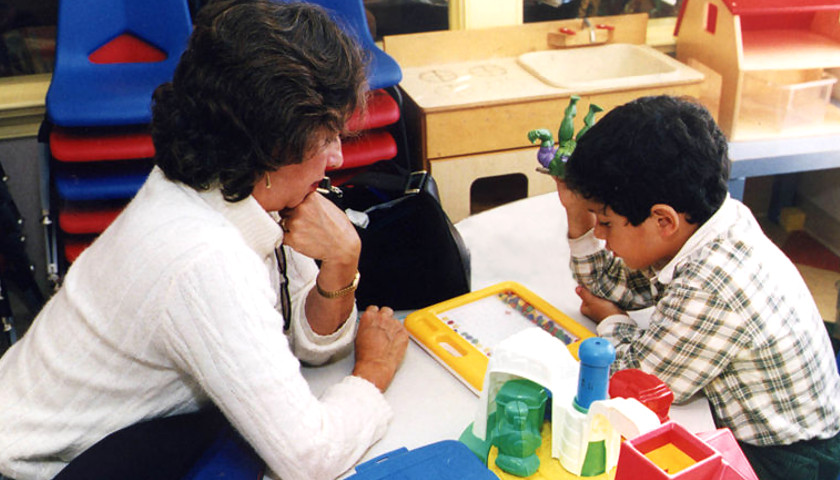Nobody can dispute the fact we must increase the achievement levels of minority and low-income students. However, if that is our focus, the question we now must consider is: have we pushed some of our best and brightest students, including students of color, aside in the name of equity? What of our gifted low-income students? It is a discussion worth having if we believe the answer is “yes.”
I go back to one of the first papers I ever wrote on this subject in college. My premise was, while we could not guarantee all children begin and end their formal education at the same level, we could guarantee all children have the same access to opportunities. Not all children have the luxury of having a nurturing home to grow up in, a proper diet, access to learning materials and a support network to help them. Unfortunately, that is the world we live in, and if truth be told it has been this way for a while. Intrinsically, motivation is a factor. Why do some children, even in the same family, excel and others not succeed? Do peer groups matter? What of external environments? Do the conditions of society impact our children? I think those answers are fairly common sense.
In a 2012 study, The Missing “One Offs”: The Hidden Supply of High Achieving, Low Income Students, economists Caroline Hoxby and Christopher Avery highlight the importance of the K-12 education years. It is critical that talented students from all backgrounds be identified and given support at this time in their K12 education. For example, China and India produce eight times more engineering students each year than the United States. Talented students cannot reach their full potential if we do not identify and develop them early. That is one advantage some countries do educationally better than we do here in America. On the other hand, most of these countries do accept or educate all of their children to levels that our students are afforded, due to limits they place on access to education. The question, I have always asked: why can we not do both? Let’s educate ALL children to their highest potential.
According to the Jack Kent Cooke Foundation research study Equal Talents, Unequal Opportunities: A Report Card on State Support for Academically Talented Low-Income Students: “ Year after year, in every state and community in our nation, students from low-income families are less likely than other students to reach advanced levels of academic performance, even when demonstrating the potential to do so.” In this study, Tennessee received a D+ from the Foundation. I am usually skeptical of groups and grades, and do not put much stock on groups offering external critiques of our education performance, but this study caught my attention, as it reinforced my belief, we are losing generations of children that fall through cracks in the system. Tennessee would likely fare better in an updated study, but it highlights the point: we must have the structure in place to identify and address talent development more effectively.
Bureaucratic challenges often hinder our educators from getting our students what they need. Some of the recommendations in the research included: 1) When releasing state data on student outcomes, ensure that the performance of high-achieving students is highlighted. 2) Remove barriers that prevent high-ability students from moving through coursework at a pace that matches their achievement level. This includes a range of academic acceleration options, such as early entrance to kindergarten, acceleration between grades, dual enrollment in middle school and high school (with middle school students able to earn high school credit), and early graduation from high school. 3) Ensure that all high-ability students have access to advanced educational services, including increased opportunities for dual enrollment and AP courses. We must track our best and brightest students better, and conduct professional development for educators in this area to help them identify and develop these students. Teachers and principals must have the freedom and flexibility to act on their best instincts to help all students. A new 2019 research brief from the Tennessee Education Research Alliance finds high-quality Tennessee principals less likely to serve poor and low-achieving students, which seems counter-intuitive to creating better schools.
There is no opposition to closing the achievement gap of minority and low-income students. We all understand that should and must occur. Perhaps we need an equal push for equality of opportunity, where we put ALL our children first. The statistics are telling us we are losing some of our very best and brightest students. Heidi Grant points out that “smart, talented people rarely realize that one of the toughest hurdles they’ll have to overcome lies within.” I would add that we do not make it easy for high achievers in public education, and it is time we start looking at that issue very carefully as well.
– – –
JC Bowman is the Executive Director of Professional Educators of Tennessee, a non-partisan teacher association headquartered in Nashville, Tennessee. Permission to reprint in whole or in part is hereby granted, provided that the author and the association are properly cited. For more information on this subject or any education issue please contact Professional Educators of Tennessee.






A noble endeavor but not practical in an education scheme that requires catering to all levels of academic capability. It appears to me that those students that have more difficulty learning – for whatever reason – require and receive more attention and time than those that grasp and retain knowledge more readily. Access to education does not necessarily produce good results. Just look at the dismal rate of graduation from our community colleges where our state government has unwisely decide to give most everyone a “free” education.